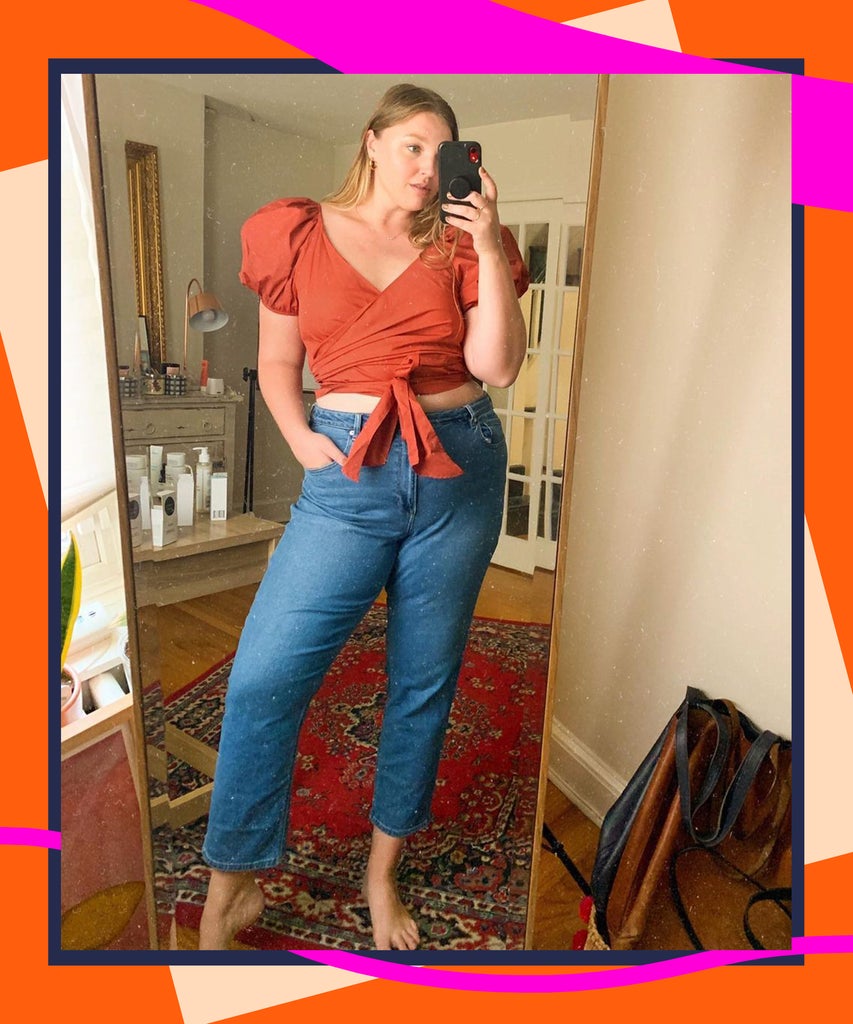
Growing up, one of the reasons I was most happy to live in Florida was that I rarely had to wear jeans. For most of the year, it was simply too hot for them, and, even though I hated the humidity, it was a huge relief to not need an entire wardrobe of denim. As someone who was nearly six feet tall and wearing a size 12 in women’s clothes by the time I was 12 or 13, shopping for jeans wasn’t just difficult, it was flat-out miserable.
And the low-rise styles that were all the rage in the early-mid 2000s, the ones that are experiencing a comeback right now? They made the experience even worse. Unlike most of my peers, I had hips and a stomach as soon as I hit puberty. The idea of wearing low-rise jeans didn’t just seem physically uncomfortable to me but off-limits altogether, not least because that’s the message brands appeared to send out with few on-trend options in my size.
When my friends were shopping at popular teen destinations like Hollister or Abercrombie, I was searching for bigger sizes in the back section of a Macy’s, hiding the labels so no one would know that I wasn’t a size 2 or 4. I was angry that I wasn’t able to “pull off” the denim trend, and embarrassed to be wearing a bigger size than every other girl my age. I was barely a teenager at the time of the Y2K low-rise revolution but already full of bitterness that this was the hand I had been dealt when it came to fashion.
I didn’t feel like I was choosing not to wear low-rise jeans. Instead, it felt like there was a rule saying I couldn’t. Bodies like mine didn’t deserve to wear styles like that, I would tell myself. When I opened a magazine, turned on a television show, or went to the movies — I can still vividly remember seeing Lindsay Lohan’s low-slung jeans and mini skirts in the 2004 film Mean Girls and feeling sad that I could never dress just like that — and didn’t see a single body that looked like mine, this belief was confirmed.
For a long time, I cut out photos of models and fashion ads in magazines, which often included low-rise denim jeans and skirts, and pasted them on my wall. I told my parents and friends that this was because I liked fashion, but really I was using it as something much more dangerous: motivation to lose weight. I spent many nights dreaming up the exact outfits I would wear when I was thinner.
Luckily for me, the years after middle school passed quickly. Over time, I became more confident, styles changed, and body diversity started to slowly (very slowly) creep into mainstream media. The popularity of high-waisted silhouettes made things a bit easier and more comfortable, and an expansion of plus-size options at fashion-forward brands helped, too.
But I still didn’t particularly love wearing jeans until I made a major change — one that had never even crossed my mind as a 12-year-old hiding in the fitting room of a store made for people decades older than me: I started dressing in a way that worked for me — that made me the most comfortable, confident version of myself.
I realized that believing that I “couldn’t” wear things only limited my personal style. Resenting my body only deprived me of enjoying life. Creating restrictive fashion rules for myself only made me angry. So I let all of that go.
Sometimes, this meant not being afraid to go up one, two, or three sizes in denim. Other times, it meant not wearing jeans at all. Because of the way my body is built, I prefer items with a little more room and stretch to them; garments that don’t dig into my stomach when I sit down. That, along with the fact that constantly pulling up low-rise jeans or showing off a thong doesn’t feel comfortable to me, means I have no intention of jumping on the low-rise jeans trend now that it’s here again. But this time around, the reasoning behind my hesitation is different.
I thought then that not being “allowed” to wear certain trends meant that there was something wrong with my body, a flaw that needed to be improved before I experimented with fashion trends, or felt sexy in clothing. Now, I know that I can wear any trend I want to — low-rise jeans included — and the only person’s opinion that matters is mine. Because of that, I feel more confident than ever choosing styles that I know accommodate my body in a way that makes me feel the best in my skin.
That difference makes me feel sexier and trendier than a pair of low-rise jeans ever could. The only bitterness I feel these days is that I wasted so many years believing I wasn’t worthy of wearing what I wanted to. Luckily, that is starting to fade. It might even be gone by the next time early ‘00s trends make a resurgence.
Like what you see? How about some more R29 goodness, right here?
Low-Rise Jeans Are Officially Back

No comments:
Post a Comment